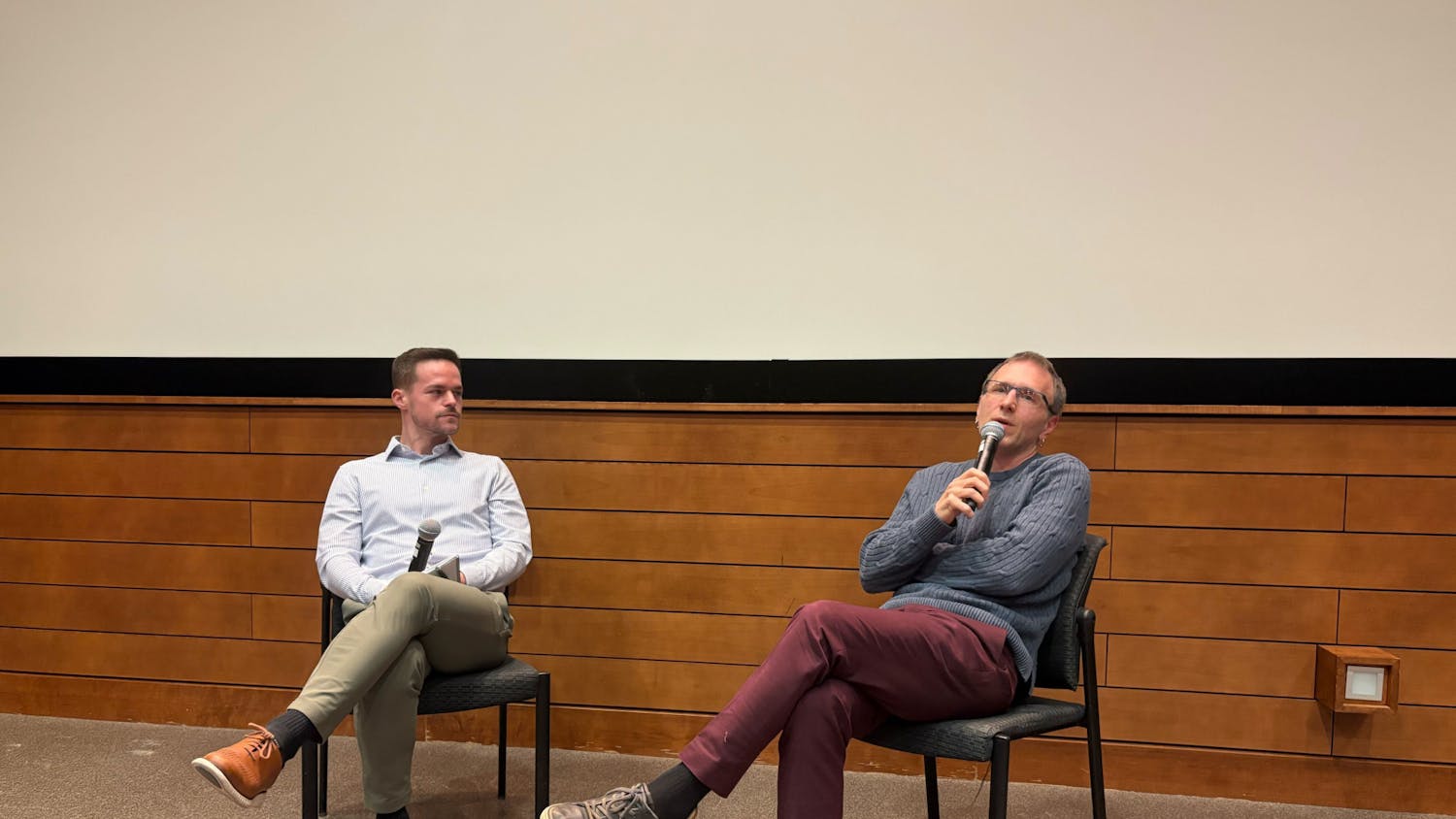The University of Wisconsin-Madison will play a central role in Microsoft’s newest artificial intelligence initiative, joining Princeton University as one of only two universities in the world partnering on the company’s Discovery Platform — a tool designed to accelerate breakthroughs in scientific research.
UW-Madison and TitletownTech, Microsoft’s Green Bay-based innovation hub, will work with the tech giant to pilot AI systems that assist researchers in modeling data, simulating experiments and advancing discoveries in areas such as life sciences, manufacturing and materials science. The collaboration marks an expansion of Microsoft’s long-running TechSpark initiative in Wisconsin and positions the state as a key national site for AI-driven research and economic development.
“This is not a typical corporate R&D center or a one-off research grant,” Matt Adamczyk, director of TitletownTech at Microsoft told The Daily Cardinal in an email. “This is a shared undertaking grounded in deep engagement in these local communities and shared alignment on the promise of AI.”
Microsoft leaders said Wisconsin’s strong research ecosystem, paired with nearly eight years of TechSpark programming, made UW-Madison and TitletownTech “a natural choice.”
“Wisconsin thrives on bold ideas and collaboration,” Adamczyk said. “By combining world-class industry and academic expertise, Microsoft Discovery paves the way for breakthroughs in materials science, manufacturing and life sciences, spurring innovation for the region and beyond.”
Microsoft emphasized that the partnership builds on years of TechSpark initiatives aimed at expanding economic development, digital skills and innovation across Wisconsin. The Discovery Platform represents the next phase of that work.
“Given the strong foundation we have with TitletownTech and UW-Madison, Wisconsin was a natural choice to launch the collaboration program,” Adamczyk said.
What the Discovery Platform does
Microsoft leaders said the Discovery Platform is designed to bring “Agentic R&D” to life, an approach that embeds AI throughout the scientific research process.
Adamczyk said the platform is built on a “powerful graph-based knowledge engine” that allows it to move beyond simple fact retrieval and instead map complex scientific relationships. The engine can interpret conflicting theories, diverse research results and nuanced connections across scientific disciplines.
“This engine builds graphs of nuanced relationships between proprietary data and external scientific research,” Adamczyk said. “It gives the platform a deep understanding of scientific context while providing detailed source tracking and reasoning. That transparency is essential in building trust and ensuring experts can validate every step.”
The platform also allows researchers to create teams of specialized AI agents that evolve alongside their work. Rather than operating in siloed pipelines, the Discovery Platform uses a continuous research cycle where agents learn, adapt and collaborate with human scientists, according to Adamczyk.
“R&D teams will be able to build a custom AI team aligned to their specific processes and knowledge,” Adamczyk said. “These agents aren’t just capable of working for researchers — they work with them to amplify human ingenuity.”
Microsoft’s Copilot will act as the central coordinator, identifying which tools, models or agents to deploy based on the needs of the research team. Adamczyk described Copilot as “a scientific AI assistant orchestrating specialized agents” across the platform’s catalog.
Built on Microsoft Azure, the system is designed to support custom, open-source or commercial tools. Adamczyk also said the platform will be “future-proofed” as Microsoft rolls out new advancements, including its upcoming work in quantum computing and embodied AI.
A model for future collaborations
The UW-Madison and Princeton pilots will help Microsoft build out a national model for accelerating scientific discovery through AI.
“While we are in the early days of what is possible, we are collectively committed to a joint exploration of what’s possible when our institutions work hand-in-hand to accelerate science and innovation,” Adamczyk said.
The partnership’s early research focus areas are expected to include materials design, advanced manufacturing and life sciences, areas where UW-Madison researchers already lead major national projects.
UW-Madison researchers will begin piloting the Discovery Platform in the coming months, with formal programming expanding throughout 2026.
Alaina Walsh is the associate news editor for The Daily Cardinal. She has covered breaking news on city crimes and a variety of state and campus stories, including the 2024 presidential election and the UW-Madison budget.






